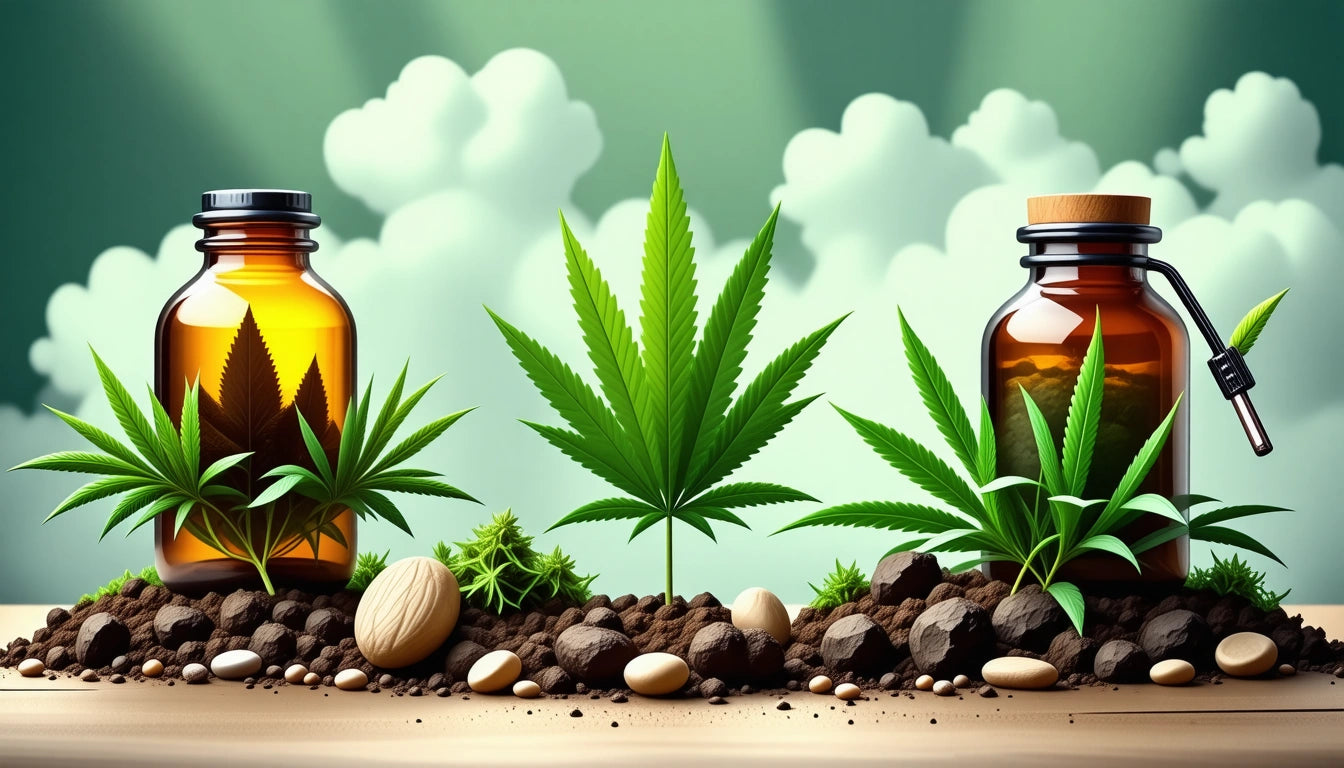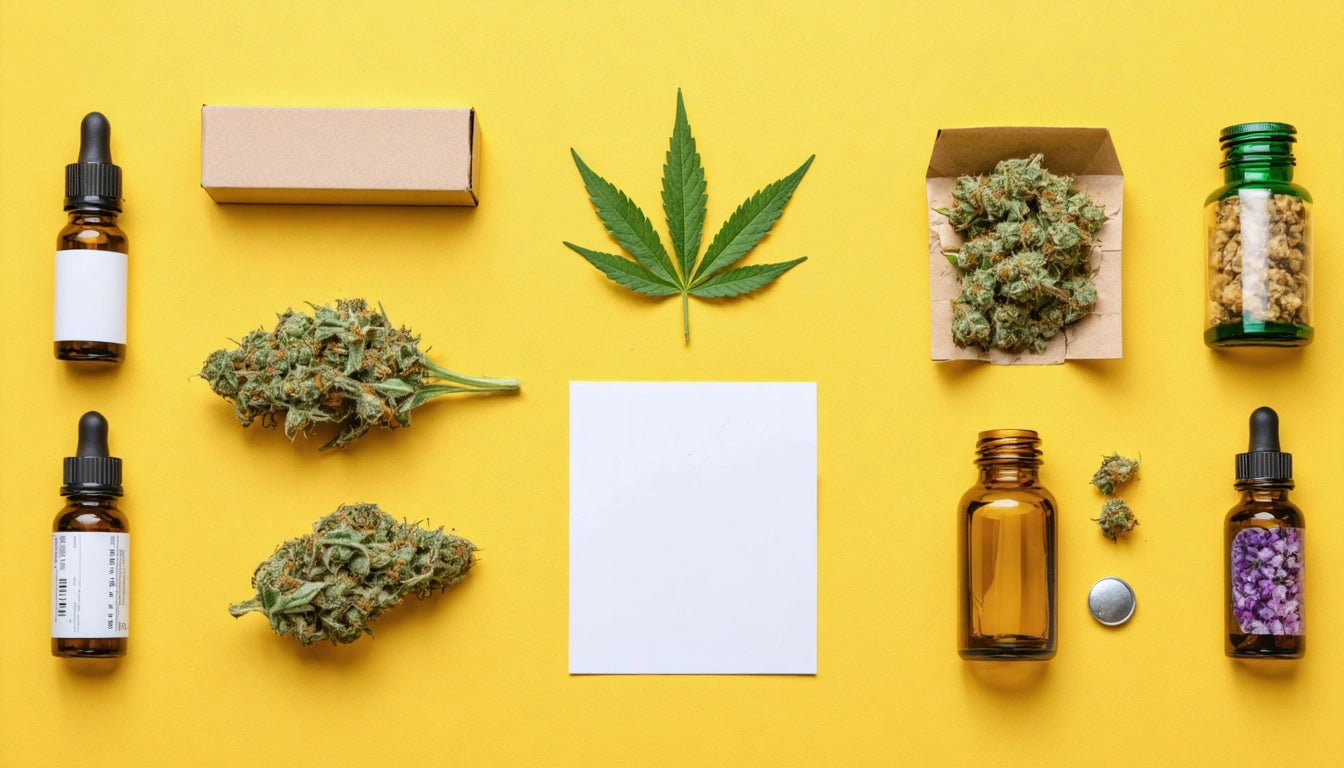Table of Contents
- What is Delta-8 THC?
- Delta-8 vs Traditional Cannabis: Key Differences
- Effects and Potency: How Delta-8 Feels Compared to Weed
- Aroma and Consumption: Does Delta-8 Smell Like Weed?
- Safety and Risks: Are Delta-8 Edibles Safe?
- Legal Status: Why Delta-8 is Available Where Cannabis Isn't
- Making Informed Choices About Delta Products
Understanding Delta-8: How It Compares to Traditional Cannabis
The cannabis market has expanded dramatically in recent years, introducing consumers to alternatives like Delta-8 THC. This cannabinoid has sparked considerable interest and confusion, with many wondering what delta 8 weed actually is and how it compares to traditional cannabis. This comprehensive guide explores the similarities, differences, and important considerations between delta 8 vs real weed.
What is Delta-8 THC?
Delta-8 tetrahydrocannabinol (Delta-8 THC) is a naturally occurring cannabinoid found in cannabis plants, though in very small quantities. Unlike the more abundant Delta-9 THC (the primary psychoactive compound in traditional cannabis), Delta-8 has a slightly different molecular structure, with the double bond on the eighth carbon chain rather than the ninth.
Most commercial Delta-8 products are created by converting CBD extracted from hemp through a chemical process, making it technically hemp-derived rather than marijuana-derived. This distinction is crucial for understanding its legal status and effects.
Delta-8 vs Traditional Cannabis: Key Differences
Chemical Structure
The primary difference between Delta-8 and traditional cannabis lies in their chemical composition. Traditional cannabis contains high levels of Delta-9 THC, while Delta-8 products contain the alternative cannabinoid. As explained in this comparison, this slight molecular difference creates notable variations in effects and potency.
Source and Production
While Delta-8 occurs naturally in cannabis, commercial Delta-8 products are typically manufactured by converting CBD from hemp plants through chemical processes. Traditional cannabis, on the other hand, is cultivated specifically for its natural cannabinoid content, particularly Delta-9 THC.
Effects and Potency: How Delta-8 Feels Compared to Weed
Many users describe Delta-8's effects as milder than traditional cannabis. According to user reports, Delta-8 typically produces:
- A clearer high with less anxiety and paranoia
- Milder psychoactive effects (approximately 50-75% the potency of Delta-9 THC)
- Less cognitive impairment
- More functional body relaxation
- Reduced likelihood of overwhelming experiences
For consumers seeking more controlled experiences, Delta-8 offers an alternative that still provides therapeutic benefits like pain relief and relaxation without the intensity sometimes associated with traditional cannabis.
Aroma and Consumption: Does Delta-8 Smell Like Weed?
A common question is whether delta 8 smells like weed. Delta-8 flower (hemp flower infused with Delta-8) can smell similar to cannabis, as both contain terpenes that contribute to their aroma. However, pure Delta-8 distillate has minimal smell, and many Delta-8 products are formulated with different flavors that mask any cannabis-like aroma.
Delta-8 products come in various forms similar to traditional cannabis, including:
- Vape cartridges and disposables
- Edibles and gummies
- Tinctures and oils
- Infused flower (sprayed or infused hemp)
For those interested in smokable options, pre-rolled cones with custom branding have become increasingly popular for both Delta-8 and traditional cannabis products, offering convenience and consistency for consumers.
Safety and Risks: Are Delta-8 Edibles Safe?
The safety profile of Delta-8 products remains a topic of ongoing research. While Delta-8 itself appears to have a similar safety profile to other cannabinoids, there are specific concerns about production methods and product quality in this largely unregulated market.
Key safety considerations for Delta-8 products include:
- Production methods may leave harmful residual solvents if not properly purged
- Lack of consistent testing standards across the industry
- Variable potency and potential mislabeling
- Limited research on long-term effects
Research on Delta-8 safety suggests that while the cannabinoid itself appears relatively safe, product quality varies significantly. Consumers should seek products with comprehensive third-party lab testing results to verify content and purity.
Legal Status: Why Delta-8 is Available Where Cannabis Isn't
The legal distinction between Delta-8 and traditional cannabis stems from the 2018 Farm Bill, which legalized hemp and hemp derivatives containing less than 0.3% Delta-9 THC. Since most commercial Delta-8 is derived from legal hemp, it has existed in a legal gray area that has allowed it to be sold in many states where traditional cannabis remains illegal.
However, the legal landscape is rapidly evolving, with many states specifically addressing Delta-8 in their regulations. Some have banned it outright, while others have embraced it within regulatory frameworks. This resource provides more detailed information about the complex legal status of Delta-8 products.
Making Informed Choices About Delta Products
When deciding between Delta-8 and traditional cannabis, consider your specific needs, preferences, and legal situation. Delta-8 may be appropriate for those seeking milder effects, legal alternatives where cannabis remains prohibited, or as an entry point for those sensitive to traditional THC.
For the best experience with either option:
- Start with low doses, especially if new to cannabinoids
- Purchase only from reputable vendors with third-party testing
- Research your state's specific laws regarding both substances
- Consider the intended use (recreational vs medicinal)
- Consult healthcare providers if using for medical purposes
Whether you choose Delta-8 or traditional cannabis, understanding the distinctions between these products empowers you to make choices aligned with your wellness goals and preferences. As research continues to evolve, staying informed about new findings will help you navigate this expanding landscape of cannabinoid options.











Leave a comment
All comments are moderated before being published.
This site is protected by hCaptcha and the hCaptcha Privacy Policy and Terms of Service apply.